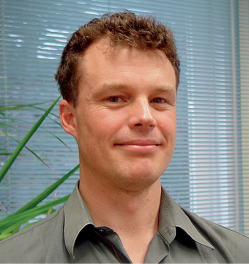
By Dr Marc Bellette, Strategy and Research, Australian Emergency Management Institute.

The paper community bushfire Safety: a review of post-Black Saturday research by Whittaker and Handmer (pages 7 – 13 of this edition) provides an important and timely review of studies of bushfire community safety. This appears to be the first attempt to systematically review various studies (n = 9) post-Black Saturday. It is encouraging to read that there has been a developing research focus on community awareness and attitudes, planning and preparedness arising from Black Saturday. The findings by Whittaker and Handmer show challenges for agencies in navigating our communities through pending policy changes. This is demonstrated in the paper by the suggestion that community understanding of Code Red FDR is limited, and the finding that ‘many people intend to wait for advice or until they are directly threatened’. In the context of evolving policy, these findings (and others presented in the paper) are important in understanding how agencies should communicate with the public, and what information should be given. In this way, a role for research to lead policy exists; research-led policy.
People often accept research findings at face value, whilst emergency managers need an in-depth clarity of research given the consequences if their decisions are incorrect. This means an understanding of methodological design, interpretation of results, and the level of confidence (essentially trust) that can be attributed to research findings. If new policies are to be informed by research then it has to be assured that its recommendations are likely to be corrective and not maladaptive to what is intended. To this end, study approaches, assumptions and limitations of research methods need to be understood not by researchers alone, but communicated to policy makers in a manner they understand. As a small but important case in point, Whittaker and Handmer report that a 95% confidence interval is typical in social research, but do emergency management policy makers understand that this means that there is a 1 in 20 chance that the research findings are incorrect? Are policy makers happy or unhappy with this level of confidence?
The nine studies are all inductive research (moving from specific observations to broader generalisations). Many of the nine studies used frequency counts in analysing results. Whilst counts of responses can be informative, further questions and statistical analysis of the data would be well worthwhile given the amount of work done in the survey stages. Searching for correlations between discrete community behaviours and uncovering demographic correlates would be interesting. Studies that use multivariate statistics (particularly widely used techniques in quantitative social research such as Principal Components Analysis and Multi-dimensional Scaling) are highly suited to research aims that seek to explore, discover, understand and investigate (as are the reported aims of many of the nine reports reviewed by this paper). The generation of hypotheses of the causal relationships behind community behaviours could then be tested leading to a more robust set of findings for future policy.
In early October, I attended the APEC Emergency Preparedness Working Group International Conference on Managing Forest Fires, in Khabarovsk, Russia. We are not alone in our challenges. Large fires this year in Russia, central Asia and the Americas have demonstrated that fires are a growing global problem. Australia’s progress in communication with the community, policy and research is of interest to the international fire management community; particularly as most fires throughout the world are have anthropogenic causes and consequences. Developing research on community safety and behaviours in the international context of forest fire management would be timely.
Dr Marc Bellette has a PhD in fire ecology, and is interested in land management of forests and woodlands of Victoria. He has held positions as Associate Lecturer at La Trobe University, and position of Lecturer with the University of Melbourne. He currently works for the Australian Emergency Management Institute in the Research and Strategy Group.
Editors note: The April 2011 edition of AJEM will have a special focus on bushfire. Contributions to the debate are welcome.